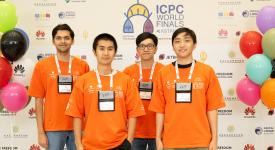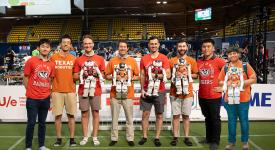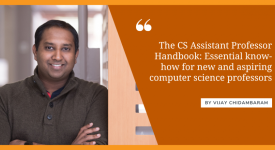Ph.D. Student earns prestigious fellowship

04/03/2025 - The Department of Computer Science is proud to celebrate fourth-year Ph.D. student, Vinayak M. Kumar, who earned a coveted fellowship with Jane Street.Jane Street, a trading firm that utilizes technology and “a scientific approach” in its business, announced Kumar as one of its nine fellows in the 2025 Graduate Research Fellowship Award class. Fellows come from over 15 different universities in wide range disciplines including computer science, mathematics, physics, and statistics.











